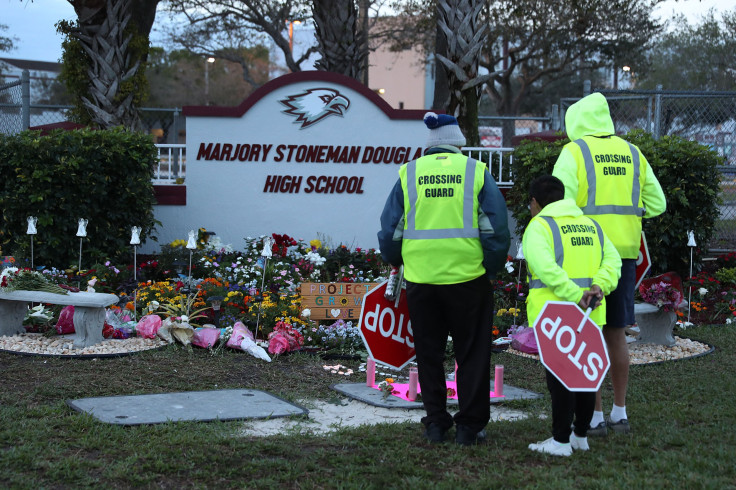PTSD Symptoms, Causes: Second Parkland Student Dies By Suicide In A Week

Two survivors of the 2018 Parkland school shooting killed themselves over the past week, just over a year after a gunman opened fire and killed 14 students and three teachers.
Police confirmed Sunday that a week after the death of 19-year-old Sydney Aiello, another survivor took his own life. The cause of death or the name of the student were not revealed. However, the police did say the boy was a sophomore at the Marjory Stoneman Douglas High School in Parkland, Florida.
Aiello graduated from high school in 2018 and was close friends with another survivor, Meadow Pollack. According to her parents, Aiello continued to live with “survivor’s guilt” and was recently diagnosed with Post-traumatic stress disorder (PTSD.)
“The death of Sydney Aiello is tragic, shocking and heartbreaking, and surely at least in significant part the result of the ripple effect of the MSD shooting,” Pollack’s family stated.
According to Victor Schwartz, chief medical officer at The Jed Foundation — a non-profit that focuses on monitoring teens’ and adults’ emotional health and preventing suicide, “Exposure to death around you does to some small degree raise the risk of suicide. It stands to reason that there is some increased risk around survivor guilt.”
He also said while the Parkland students did an “incredible job” of advocating gun safety, sadness and distress were still there. “I am sure many of these students are still struggling with symptoms that look like PTSD, and how could they not?” he said.
The American Psychiatric Association defines PTSD as a psychiatric disorder that can occur in people who have experienced or witnessed a traumatic event such as a war, any natural disaster, an accident, a terrorist attack, rape or other violent attacks. People may also suffer from PSTD after the loss of a close friend, family member or partner. Several survivors of school shootings suffer from PTSD despite not having been wounded or hit in the event. This is attributed to having seen a dead body or seeing their classmates and friends hurt.
The symptoms of PTSD usually begin in the first three months of the incident but sometimes they may take several years to manifest. They last more than one month and may cause issues with relationships and work. Doctors say the course of the illness varies and some people may be treated within six months but others have symptoms that may last for years.
The symptoms of PTSD include:
- Intrusive thoughts: These include repeated and unwanted involuntary memories, distressing dreams or flashbacks of the event. These flashbacks may be vivid enough for the person to feel that they are re-living the experience or seeing it happen again.
- Avoiding reminders: People suffering from PTSD are known to avoid the place, people, activities, objects and situations that may bring back their memories of the incident. Students often avoid going to school or change their schools so they don’t have to face the place that triggers their PTSD. They also resist talking about their feelings related to the incident.
- Negative thoughts and feelings: Patients often have distorted beliefs about themselves and others which include things like, “no one can be trusted”, “I am bad, I do not deserve to live” and have an ongoing fear of loud noises, bright lights etc. They also feel extreme guilt or shame for having survived. They lose interest in activities they enjoyed previously and are known to feel detached from their close ones.
- Arousal and reactive symptoms: Patients are known to be irritable or angry and have outbursts over small issues; they behave in a reckless or self-destructive manner. They are easily startled and are constantly worried about the incident taking place again. Patients also have issues with concentration, focus and sleeping.
Panic disorder, depression, substance abuse, suicidal thoughts and severe anxiety are also common disorders that patients with PTSD suffer from.
Though PTSD cannot be cured, it can be treated and made dormant by medication and psychotherapy.
If you have thoughts of suicide, confidential help is available for free at the National Suicide Prevention Lifeline. Call 1-800-273-8255. The line is available 24 hours, every day.
© Copyright IBTimes 2025. All rights reserved.





















